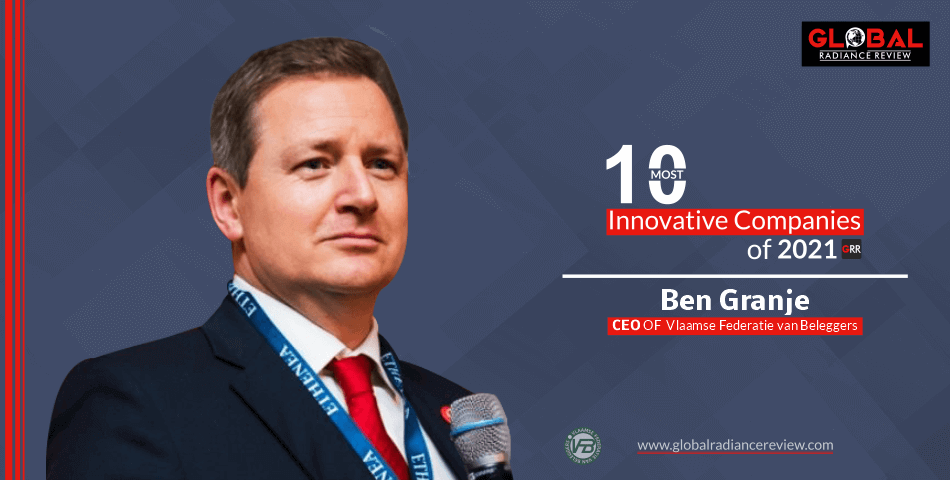We are living in times where health is the new wealth. Every single day, the news is replete with a new health crisis or a never-ending pandemic. Not equipped with complete knowledge about health issues, the ordinary person is often alarmed and confused. Here is where healthcare professionals and allied sectors can change the landscape.
They decide on strategic directions, modify their operation, and adopt digitalization according to the need of the time or a crisis.
While many such health leaders are charting strategies for the healthcare sector, we came across Lina Shadid, Lead Partner for Health at PwC Middle East, who chose to take the unbeaten path.
It was her childhood dream to work for the health sector, and the universe just conspired to pay her the dividends for her perseverance.
Being a healthcare leader is no cakewalk, but Lina mastered it and has set an example for many to follow. Read to know more about her contribution to the healthcare sector.
An Illustrious Journey
Her distinguished career spanning 25+ years speaks volumes about her work and commitment. During this period, she worked in consulting for 25 years and has focused on healthcare consulting since 2007. Over the last two decades, she has been dedicated to the healthcare ecosystem in the Middle East and globally. She has supported governments and private sector clients on a range of healthcare transformation projects, including digitization, innovation, and automation.
Lina’s interest in the healthcare sector started from a very young age as her father was a physician. She was fascinated by his job and how doctors could save lives. Following his steps, she started her career in digital consulting and inevitably tailored her consulting career towards healthcare as soon as she could. Through the years, her passion for the healthcare industry only strengthened.
Delivering the Best
In an increasingly complex world, PwC helps intricate systems function, adapt, and evolve to benefit communities and society – whether they are capital markets, tax systems, or the economic systems within which business and society exist. PwC helps its clients make informed decisions and operate effectively with them.
As the Middle East emerges from the impact of the pandemic and enters a new phase of transformation, PwC is uniquely positioned to support governments and businesses in the region.
The company’s new global strategy, “The New Equation”, speaks of the two most fundamental needs clients and organizations are grappling with today – building trust and delivering sustained outcomes in an environment where competition and the risk of disruption are more intense than ever. And societal expectations have never been greater.
The Vision
In healthcare consulting, PWC’s vision is to be true partners in transforming the healthcare industry in the Middle East. We pride ourselves on bringing the right strategies, operational support, and digitization to every client to achieve their healthcare vision and outcomes.
Braving the Pandemic
The pandemic has impacted the healthcare sector in several ways. Firstly, it has highlighted the gaps in the public health ecosystem, the need to improve access to care anywhere, and ensuring that healthcare can be innovative, agile, and localized in all aspects from workforce, care delivery, supply chain, and pharma.
The pandemic highlighted the power of digital and data in healthcare globally and identified the need to deploy strong predictive analytics and data forecasting models to advance healthcare provision. From an operational perspective, the healthcare workforce needs to enhance their digital skills – from data analytics to using new technologies to providing care through digital means, as well as healthcare facilities optimizing costs at all levels and rethinking their delivery models. Finally, the pandemic emphasized the need to maintain our focus on preventative care, mental health, and wellbeing.
“During the start of the pandemic, our focus was to support our healthcare clients run their daily operations while dealing with the restrictions to keep distance, provide care virtually and deal with the overwhelming number of patients,” said Lina.
Throughout the pandemic, PwC supported many of its clients in new projects, which included a range of business cases and frameworks for virtual care, gathering data for improvements in healthcare facilities’ operations, and designing a national digital health blueprint, to name a few.
Rising need for Technology in Healthcare
COVID-19 has proved that digitization is a key element for the delivery of healthcare, not just regionally but globally. PwC has always been dedicated to supporting its clients with their enhancements to digital health. “However, we have seen it move from a ‘nice to have’ to a necessity over the last 18 months,” observed Lina.
The workforce was required to quickly adapt to new ways of delivering care during the pandemic, from diagnosing patients to dealing with overwhelming numbers of patients to providing care remotely. This has led healthcare companies to ensure that their staff was upskilled digitally very quickly to respond to the pandemic and continue to be upskilled to embrace the new ways of health provision.
“During the pandemic, we also saw how important data and analytics are to healthcare – from the diagnosis to predicting the number of cases and the medical equipment needed, to providing data to create a vaccine and overcome the pandemic in unison. It is paramount that the healthcare industry continues to push with the adoption and enhancement of data usage,” Lina emphasized.
It has also become apparent that health organizations have no choice but to serve their patients in a more convenient and integrated way. Patients are more likely to want to be data-informed and have a fluid experience that includes physical and virtual care; hence, digitization is driven by patient needs and expectations.
PwC has supported several clients to transform their operations by focusing on relevant technologies that will help them excel in patient care delivery and operational efficiencies to serve their patients better and improve their quality of healthcare provision.
Sustaining Operations Amid the Pandemic
For PwC, the safety of its employees was paramount. At the same time, it had an obligation to deliver to its clients, especially when it was helping with COVID-19 related projects that were time-sensitive.
“Our team was advised to work from home in the early stages of the pandemic and to take extra precautions when visiting clients’ sites. Overnight our team created a symptom checker app that we ensured our team used and then rolled out to the wider PwC employees in the Middle East,” informed Lina.
Along with the symptom tracker app, the PwC team had already started working on a mobile application for the mental health of its employees, and this was rolled out when its staff was isolated at home.
Furthermore, PwC ensured that the team had regular check-ins, and it hosted several virtual social events which were highly interactive and included all staff members in the team.
These efforts have helped reduce the negative impact of COVID-19 on its team when working remotely, especially those who live alone or are away from their families.
“One thing that I was grateful for at the start of the pandemic was the readiness of PwC technologies to be able to move to a virtual environment quickly, hence putting myself, my team, and my clients somewhat at ease,” Lina said.
Digitization and Innovation for Patient Outcomes
The future of healthcare will focus on prevention and population health. Healthcare provision will be sought through value-based care all over the world. This was a growing trend that was apparent before COVID-19, and the pandemic has only exacerbated the need to focus on the desire for preventative care.
The pandemic has made it evident that healthcare can be delivered outside of hospital settings. In such a short space of time, health providers were able to set up remote care capabilities. Over time, these capabilities should be enhanced to redefine patient journeys to include remote care. The health industry doesn’t need to build more hospitals. Instead, there needs to be a focus on optimizing and improvising the delivery of care.
Digitization and innovation are a must to continue improving health outcomes, develop new diagnoses and treatment ways. During the pandemic, health providers were quick to try and use Artificial Intelligence (AI), the Internet of Things (IoT), data platforms, and automation, to name a few. Soon, these health technologies will be integral to healthcare delivery.
Another aspect of the healthcare sector that rose since the pandemic is the focus on genomics and precision medicine. This is a huge focus area for PwC clients globally and recently within this region.
PwC is building its capabilities to support clients with these future demands and continue to focus on thought leadership tailored to its region.
A Collaborative Approach
Lina believes in a collaborative approach and feels that the global healthcare industry should resort to such strategies.
“One thing that I ensure my team delivers to our clients is a co-creating experience through every engagement. It is important to the healthcare industry that healthcare consultants do not work in silo from the healthcare entities. Instead of that, a collaborative approach is taken,” said Lina, adding, “The client teams need to be involved; they can lead with us. We can listen to their ideas and insights, and our team makes sure they focus on knowledge transfer throughout each project. If every stakeholder in the industry took this approach, I believe the healthcare industry would thrive even more so.”
Words of Wisdom for Budding Entrepreneurs
For anyone venturing into the healthcare industry, Lina’s key advice is to build the right team. The right team is a mix of caliber and skills of those who have served in healthcare facilities, have clinical expertise, understand the patients and providers, and understand digital and data. These should also be complemented by those who understand the healthcare industry from a governance and payer perspective. Ultimately you need a team that together will know how to best align with the payers, providers, and regulators to become an integral part of the health ecosystem.
Looking Ahead and Beyond
As a network, PwC has refreshed its global strategy to form The New Equation, and it speaks of the two most fundamental needs clients and organizations are grappling with today. First is the urgency to respond to success and change in the face of the major shifts shaping the world: technological disruption, resource scarcity, demographic and social change, and the continuing effects of the COVID-19 pandemic. Second is the need to build trust when it is both more fragile and more complicated to earn.
“In healthcare consulting, we drill down with this strategy and are dedicated to enhancing the future of healthcare in our region. We are building our team to ensure we have the right skills and expertise to fully support our clients with every aspect of their healthcare transformations or enhancements,” said Lina.
The company is also differentiating its offerings, spending time to think about what the client needs or what is expected by the population, patients, providers, and regulators.
-black.png)










